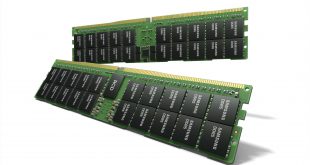Due to their out-of-spec base clock configurations, the Avexir Core Extreme Series 3000MHz and ADATA XPG V2 3100MHz memory kits were set to operate at different CPU frequencies, when the default core ratios are used.
For the following tests, we compared both of the ultra-high speed – 3GHz+ – memory kits against each other at almost identical CPU frequencies.
We tweaked the CPU multiplier to get each kit operating with processor speeds as close as possible to each other. This should give an accurate comparison of the performance gains on offer (if any) for higher speed memory.
ADATA XPG V2 3100MHz configuration: 3100MHz 12-14-14-36-2T @ 1.65V (with 4003MHz CPU frequency).
Avexir Core Extreme Series 3000MHz configuration: 3000MHz 12-14-14-35-2T @ 1.65V (with 3988MHz CPU frequency).
Despite operating at a higher DRAM frequency, ADATA's 3100MHz kit still loses out to Avexir's 3000MHz set in Sandra's memory bandwidth test. Given that both kits operate at almost identical primary timings, the performance deficit displayed by the ADATA memory could be related to secondary timings, or even systematic and measurement errors in Sandra's benchmark.
With its slightly-faster CPU frequency and 100MHz DRAM speed increase, the ADATA's kit manages to offer 1.7% more cache bandwidth than Avexir's 3000MHz sticks.
Latency performance favours the faster kit, given that both set's primary timings are almost identical. ADATA's 3100MHz memory shows a consistent 2.2% performance lead in both latency tests.
Despite its greater DRAM speed, the Maxxmem2 benchmark does not like the configuration of ADATA's 3100MHz memory. It's hard to think of anything other than secondary timings that could be to blame for Avexir's lower-speed kit with near-identical timings offering greater performance.
Other than one-hundredth of a point in Cinebench (around 0.1% – well within error margins), there is nothing between the 3000MHz and 3100MHz memory kits when it comes to real-world performance.
 KitGuru KitGuru.net – Tech News | Hardware News | Hardware Reviews | IOS | Mobile | Gaming | Graphics Cards
KitGuru KitGuru.net – Tech News | Hardware News | Hardware Reviews | IOS | Mobile | Gaming | Graphics Cards









